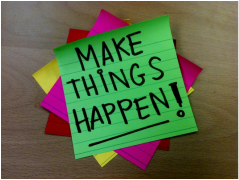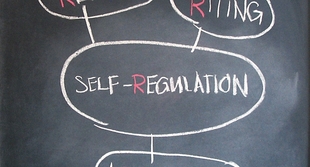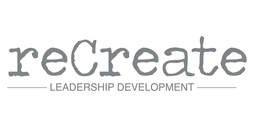|
Decades of research have revealed that EI is the critical factor that sets star performers apart from the rest of the pack. Daniel Goleman states there are five key attributes great leaders posses: 1. Self-awareness 2. Self-regulation 3. Motivation 4. Empathy 5. Social Skills Last week we took a look at empathy and today we start exploring social skills. Why do you think social skills are a vital component to leadership? Socially skilled people: 1. Have a wide circle of acquaintances 2. Have a knack for finding common ground with people of all kinds 3. Have a knack for building report Social skills are the culmination of the other dimensions of emotional intelligence. Leaders who exhibit social skills are: · Adept at managing teams (that’s their empathy at work) · Excellent persuaders (this is a manifestation of self-awareness, self-regulation, & empathy combined) · Effective change leaders · Experts in building and leading teams The result: a passion for their work spreads to others and they are driven to find solutions. On a scale 1 to 10, 1 being low and 10 being the highest: How do you rate on your social skills? No matter where you ranked, what are some ideas you can START doing today to improve your SOCIAL SKILLS? We hope the last 5 weeks have been helpful in discovering more about Emotional Intelligence and how it can set you apart from your peers!
1 Comment
Did you know: Emotional Intelligence is 2X as important as IQ and technical skills for jobs at all levels. Daniel Goleman states there are five key attributes great leaders posses: 1. Self-awareness 2. Self-regulation 3. Motivation 4. Empathy 5. Social Skills Last week we took a look at motivation and today we start exploring empathy. Why do you think empathy is an important component of leadership? Here are three reasons: 1. The increasing use of teams 2. The rapid pace of globalization 3. Growing need to retain talent Leaders who exhibit empathy are more successful in understanding their teams emotional make-up which in turn: · Encourages people to speak more openly about their frustrations · Help people raise constructive complaints during meetings The result: heightened collaboration among members and added business Just remember- when good people leave, they take the company’s knowledge with them. Here are some ways hallmarks of individuals with high empathy: · Expertise in building and retaining talent · Cross-cultural sensitivity · Service to clients and customers On a scale 1 to 10, 1 being low and 10 being the highest: How do you rate on empathy? No matter where you ranked, what are some ideas you can START doing today to improve your empathy? Next week we explore SOCIAL SKILLS!  Did you know: Emotional Intelligence provides the skills needed for leaders/executives to not only get to the top, but stay there. Daniel Goleman states there are five key attributes great leaders posses: 1. Self-awareness 2. Self-regulation 3. Motivation 4. Empathy 5. Social Skills Last week we took a look at self-regulation and today we start exploring motivation. Why do you think motivation plays a vital role in leadership? People who have high motivation are driven to achieve beyond expectations not only for themselves but also for others. These individuals are the performance bar setters. Driven by the desire to achieve for the sake of achievement, these leaders are intrinsically motivated and not just driven by external factors. Key signs to help you identify people who are motivated by the desire to achieve: · The passion for the work itself · Unflagging energy to do things better · Persistent questions about why things are done the way they are · Continuously raising the performance bar · Constantly being asked to be “stretched” by their superiors · Always tracking their progress · Remaining optimistic even when the score is against them · Commitment to the organization It’s not hard to see the direct correlation between how motivation translates into strong leadership. Here are some ways to raise the bar: · Seek out creative challenges · Be restless with the status quo · Be eager to explore new approaches · Keep score · Recognize your limits · Drive to surpass goals · STAY OPTIMISIC! On a scale 1 to 10, 1 being low and 10 being the highest: How do you rate on motivation? No matter where you ranked, what are some ideas can you START doing today to improve your motivation? Next week we explore EMPATHY!  Did you know: 90% of top performers are high in Emotional Intelligence. Daniel Goleman states there are five key attributes great leaders posses: 1. Self-awareness 2. Self-regulation 3. Motivation 4. Empathy 5. Social Skills Last week we took a look at self-awareness and today we start exploring self-regulation. Why do you think self-regulation is so important for leaders? People who are in control of their feelings have the ability to create an environment of trust and fairness. In essence, self-regulation is the ability to control or redirect disruptive impulses or moods. It’s the propensity to suspend judgment and to think before acting. The benefits organizations see when they have employees with high self-regulation: · Politics and infighting reduced · Productivity is higher · Talent flocks to a company and doesn’t want to leave Furthermore, high self-regulation enhances integrity, which is not only a personal virtue but then becomes an organizational strength. Individuals high in self-regulation exihibt: · Propensity for reflection and thoughtfulness · Comfort with ambiguity and change · Integrity · An ability to say no to impulsive urges On a scale 1 to 10, 1 being low and 10 being the highest: How do you rate on self-regulation? No matter where you ranked, what are some ideas can you START doing today to improve your self-regulation? Next week we explore MOTIVATION! |
Team reCreate
Strengths-based Development (SBD) is our passion, commitment and life. Team reCreate is devoted to work that creates transformation, meaning and purpose in the lives of those we serve. This space is meant for you to get to know us, learn more about Strengths and hear from others in this line of work. Thanks for being on this journey with us! Archives
July 2015
Categories |
Location |
|

 RSS Feed
RSS Feed